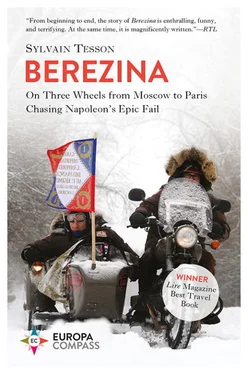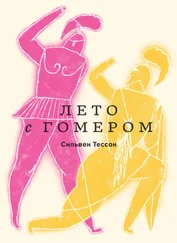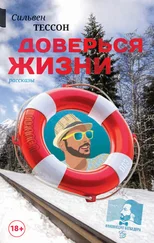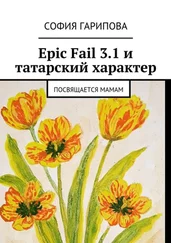There were other reasons for Kutuzov’s restraint. The Field Marshal did not wish Napoleon’s death. He knew Britain could take advantage of the disappearance of this King of Kings from the surface of the globe to extend its dominion.
His reticence about exposing his army also came from the certainty that he could count on partisans. A partisan war is defined by the amount of damage a handful of determined men can inflict on a regular army corps, tangled up in its logic of mass, the heavy bulk of its logistics, the ugliness of its principles. According to Tolstoy, a partisan war was “what guerilleros did in Spain, mountain folk did in the Caucasus, and Russians did in 1812.” One could carry on with the litany of asymmetry: it’s what Fellahs did in Algeria, the Karen against the Burmese junta, and the Taliban in Afghanistan. And it is what Islamist sleeper cells are still doing in the global war they’ve waged on secular democracies. The author of War and Peace dates the partisan war from the “enemy entering Smolensk.” In actual fact, since its departure from Moscow, the Grande Armée had been assaulted by the army of shadows. “Cossacks were all over the country,” Caulaincourt complains. Everywhere, from behind the edge of a wood or the mist of marshes, a detachment of a few dozen or several hundred partisans would spring out. Among them there were peasants hungry for pillaging, perfectly-organized groups, miniature armies commanded by a chief, bands of marauders, quartermaster sergeants fearing neither God not man, and last-minute opportunists who relied on the French rout in order to buy themselves a future. Napoleon “compared them to Arabs,” Caulaincourt said.
In war, hooligans follow the troops like seagulls follow fishermen’s trawlers. They wait for the day after the battle to rob the dead. They’re as patient as vultures. Sometimes, they lend a hand, join the regulars, and take part in battles. Where pillage is concerned, might as well be ready to get down to work. In War and Peace , Tolstoy portrays the character of Tikhon, a highwayman who fights in the Cossack ranks and steals whatever he can while declaring his faith in the “holy war and liberation of the homeland.” It’s the perennial image of the optimistic villain who benefits from the high stakes of his time. I thought that quite a few members of the current Islamic factions resembled this archetype. The West quivered and considered them without distinction as religious fanatics. But were all Jihadist highway robbers Muhammad’s pious servants? Many probably concealed a soul like Tikhon and used the holy cause to justify the use of weapons and professional crime.
During this marginal war, chiefs of the regular army, such as the poet Denis Davydov and General Platov, genies of the raid, strategists of the decisive blow, became famous for their commando actions, surrounding isolated groups of the main troops, destroying supplies, and harassing French bivouacs. Tolstoy mentions a detachment commanded by a sacristan and another by a woman “who killed hundreds of French.” Kutuzov stirred his nation. In the countryside, his speeches were charismatic. On October 31st, the Field Marshal issued a proclamation: “Extinguish the Moscow flames in the blood of your enemies. Russians, obey this solemn order.”
From that moment on, nothing—not thickets, or farms on the edge of fields, nothing could provide a refuge for the French. The smallest bed of reeds could shelter a nest of partisans. Cossacks could spring out at any time, from anywhere, ready, according to Tolstoy, to sweep “the dead leaves that fell off the dried-up tree of their own accord.”
When civilians and irregulars got involved, the war acquired a further degree of cruelty. Captured by peasants, the hapless soldiers were impaled, plunged into boiling water, buried alive, beaten to death, or thrown naked into frozen woods. The Russian countryside was intoxicated with an outburst of violence. Slumbering for centuries, the old nation had never expressed against the Tsar’s yoke the energy it was devoting to punishing the invader. This characteristic persists even today: what a Russian inflicts on another Russian is only the Russian’s business, but beware the foreigner who butts in… “The war of armed peasants […] is hurting us more than their army. […],” a hospital officer [6] Bourbon-Gravierre, organizer of the civilian hospice.
admitted.
I confess that, on the way to Smolensk that night, knowing that Vassily and Vitaly were right behind us, I often looked into my rearview mirror, just in case a band of human wolves howling war cries was about to catch up with us, riding smoking motorbikes.
In Smolensk, we stopped at the old hotel for Soviet apparatchiks, the Dnieper , still in its original condition. Room attendants with peroxided hair, Brezhnev-era decor, 1970s chandeliers, thermal industry piping: we enjoyed the Cold War atmosphere. I was forty years old and nostalgic for a world I hadn’t known. I preferred this atmosphere to that of standardized hotels with which capitalism with an inhuman face has covered our city centers: establishments designed by salespeople who thought that WiFi and an air conditioner fixed above a bolted window was better than a chat with a babushka and a window that opens over a frozen river.
I soaked in the bath for an hour and a half and felt almost ashamed about it. Our journey had ended up turning into a very serious game. The duty to pay tribute to the memory of these soldiers had pegged our souls so firmly that the slightest deviation from the rule of physical suffering seemed inappropriate.
Two pints of vodka in the hotel restaurant soon overcame these hang-ups.
“Guys,” I said, “do you remember when Napoleon’s Old Guard took something from a Vyazma warehouse that earned the city the name of ‘Schnapps City?’”
“And,” Gras said, “remember when, in Ghjat, Napoleon and his entourage discovered abandoned crates full of Chambertin and Clos Vougeot?”
“And remember,” Goisque said, “when the Emperor had carts of brandy taken from the Imperial Guard stock escorted to the troops at the rear?”
Vassily and Vitaly arrived at the restaurant at 11 P.M. The two hundred and fifty-mile stretch, covered in one breath at 10°F, had given them an appetite for soup. They were dressed in professional biker gear. Their helmets, jackets, and boots made our equipment looks like amateur rags. We had the strange feeling we were doing things “Russian-style,” in other words, we Westerners thought that’s how Russians did things, and so were looked at by Russians the way we Europeans usually look at Russians: like a rough boor who makes up for his lack of preparation for life by being indifferent to hazards.
Two more glasses and another bottle were placed on the Formica table. More toasts, there was never a shortage of those.
“Here’s to our reunion, guys,” I said.
“Smolensk is taken,” Vitaly said, using the ritual formula.
“Tomorrow,” Vassily said, “we’ll take Belarus.”
“Here’s to your leg of the journey!” I said. “You’ve beaten General Winter.”
For the first time since we’d known him, Vitaly’s face clouded over. “General Winter doesn’t exist. Russians vanquish their enemies on their own.”
In the evening, reading Caulaincourt, I came across these lines in which the general states that it was the cold that caused the disaster, “and not tiredness or attacks by the enemy.” I avoided going to wake up Vitaly and read him the passage.
DAY FOUR.
FROM SMOLENSK TO BARYSAV
On that morning, when the sun was perched above the Smolensk ramparts like a ceiling light in a Kruschchev-era bathroom, our situation would improve. From now on, we wouldn’t travel three on one Ural. Gras would stay in my sidecar, while Goisque would go into Vitaly’s, and Vassily would transport the baggage. The Russians had brought our bags, and we got back our sleeping bags, tights, and woolies that we’d neglected to take when we left for Borodino. We’d committed the same error as all the Western armies who take on Russia while underestimating the cold.
Читать дальше












